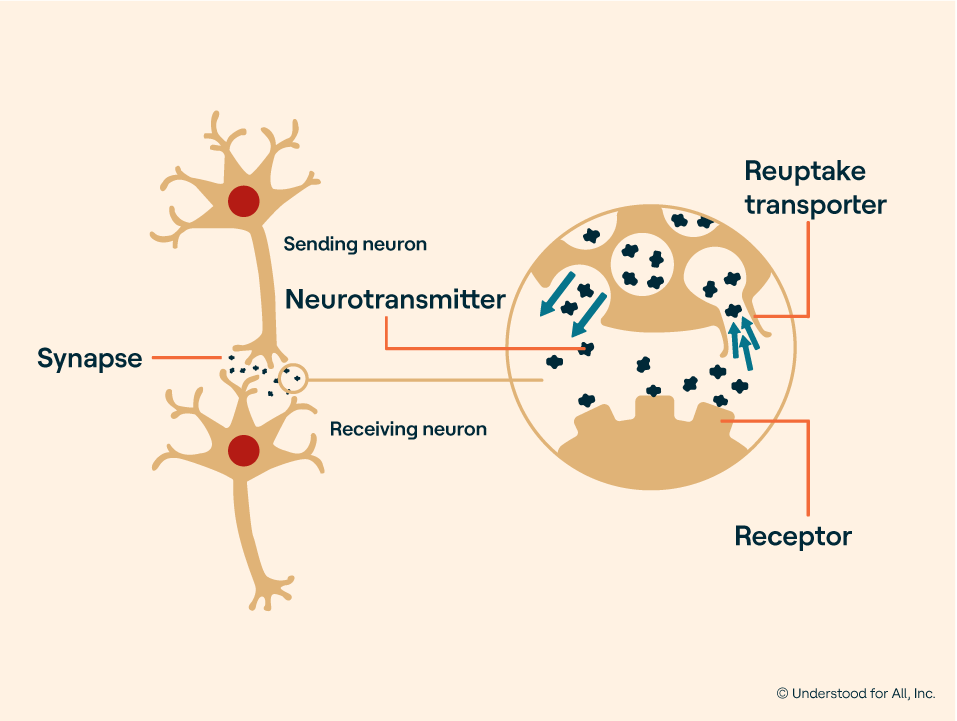Mark Halsey is a licensed therapist, founder, and chief editor of Clean Break Recovery. With over a decade of addiction treatment experience, Mark deeply understands...Read more
Stimulants are powerful drugs that are used to treat a variety of medical conditions, as well as to increase energy levels and focus. But how do stimulants work exactly? In this article, we’ll explore the science behind stimulants and how they affect the body to increase energy and alertness. From the chemical composition of stimulants to the way they interact with the brain, we’ll cover it all and more. So, if you’re curious about how stimulants work and what they do, read on to find out!

What are Stimulants?
Stimulants are drugs that increase alertness, attention, and energy. They can be prescribed to treat certain medical conditions, such as attention deficit hyperactivity disorder (ADHD) and narcolepsy. They are also used recreationally for their perceived energy-boosting effects. Stimulants can be found in many forms, such as pills, powders, liquids, and capsules.
Types of Stimulants
There are two main types of stimulants: central nervous system (CNS) stimulants and amphetamines. CNS stimulants are drugs that increase alertness, concentration, and energy. Examples include caffeine, nicotine, amphetamines, and methylphenidate (Ritalin). Amphetamines are drugs that act on the brain to increase alertness, attention, and energy. Examples include Adderall and Dexedrine.
How Stimulants Work
Stimulants work by increasing the activity of the neurotransmitters dopamine and norepinephrine in the brain. Dopamine is a neurotransmitter that helps control pleasure and reward. It is involved in the regulation of motivation, attention, and learning. Norepinephrine is a neurotransmitter that helps regulate alertness, attention, and energy.
Both dopamine and norepinephrine help to increase alertness, attention, and energy. When a stimulant is taken, it increases the amount of dopamine and norepinephrine in the brain, which increases alertness, attention, and energy. The effects of stimulants can last anywhere from a few hours to a few days, depending on the type of stimulant taken and the dose.
Side Effects of Stimulants
Although stimulants can be beneficial for some medical conditions, they can also have a range of side effects. Common side effects include decreased appetite, difficulty sleeping, irritability, nausea, and increased blood pressure. Stimulants can also be addictive, so it is important to use them as directed by a doctor.
Risks of Stimulants
Using stimulants without a prescription can be dangerous and can lead to serious health risks. Stimulants can be addictive and may cause physical and psychological dependence. Overdosing on stimulants can also be fatal. It is important to use stimulants only as prescribed by a doctor.
Conclusion
Stimulants are drugs that can increase alertness, attention, and energy. They can be prescribed to treat certain medical conditions, such as ADHD and narcolepsy. Stimulants work by increasing the activity of the neurotransmitters dopamine and norepinephrine in the brain. However, they can also have side effects and can be addictive, so it is important to use them as directed by a doctor.
Related Faq
What Are Stimulants?
Stimulants are substances that act on the central nervous system and increase alertness, concentration, and energy. Examples of stimulants include caffeine, amphetamines, cocaine, and nicotine. Stimulants can be found in many everyday products, such as energy drinks, over-the-counter cold and flu medications, and prescription medications.
How Do Stimulants Work?
Stimulants work by affecting the brain’s neurotransmitters. Neurotransmitters are chemical messengers that are responsible for transmitting signals between neurons. Stimulants increase the activity of these neurotransmitters, resulting in increased alertness and energy, as well as improved concentration and focus. They also increase the levels of dopamine and norepinephrine, hormones that are responsible for regulating mood, motivation, and energy.
What Are the Effects of Stimulants?
The effects of stimulants vary depending on the type and amount of stimulant taken. Generally, stimulants can cause feelings of alertness, energy, and euphoria. They can also improve focus, memory, and concentration. Stimulants can also have negative effects, such as anxiety, restlessness, and irritability. In some cases, they can also lead to addiction and increased risk of heart attack and stroke.
What Are the Risks of Taking Stimulants?
There are several risks associated with taking stimulants. They can be habit-forming and lead to addiction. Stimulants can also cause dehydration and increase heart rate, which can lead to heart attack or stroke. In addition, long-term use of stimulants can lead to depression, anxiety, and other mood disorders.
Are There Any Natural Alternatives to Stimulants?
Yes, there are several natural alternatives to stimulants. Exercise is one of the best alternatives, as it releases endorphins and can improve mood, concentration, and energy. Other alternatives include eating a balanced diet, getting adequate sleep, and engaging in activities that reduce stress. Herbal supplements, such as ginseng, guarana, and green tea, can also provide a natural boost of energy and alertness.
Are Stimulants Safe?
The safety of stimulants depends on several factors, such as the type and amount taken, as well as a person’s health and medical history. For most people, occasional use of stimulants is safe. However, it is important to be aware of the potential risks and side effects and to consult a doctor before taking any stimulants.
Why Stimulants Help ADHD
In conclusion, stimulants are powerful substances that can have a dramatic effect on the brain and body. Stimulants act on the central nervous system, releasing neurotransmitters like dopamine and norepinephrine which cause increased alertness and energy. This can be beneficial for those suffering from certain medical conditions, providing relief from symptoms of fatigue and depression. However, it is important to be aware of the potential risks associated with the use of stimulants, and to use them responsibly.
Mark Halsey is a licensed therapist, founder, and chief editor of Clean Break Recovery. With over a decade of addiction treatment experience, Mark deeply understands the complex needs of those struggling with addiction and utilizes a comprehensive and holistic approach to address them. He is well-versed in traditional and innovative therapies, including cognitive-behavioral therapy, motivational interviewing, and mindfulness-based interventions.
More Posts